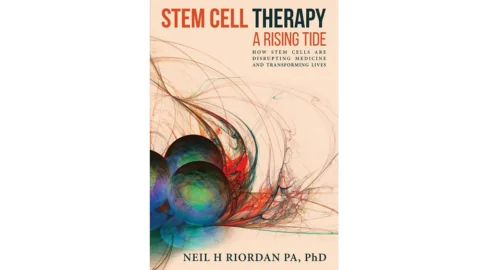July 31, 2023
A paper published today in Nature Metabolism has described a method of genetically engineering cells to respond to electrical stimuli, allowing for on-demand gene expression. Finding a better trigger Despite its futuristic outlook, this line of research is built upon previous work. The idea of an implantable gene switch to command cells in order to...
July 28, 2023
In a mouse model of Huntington’s disease, scientists showed that injected young healthy brain cells can outcompete and eventually replace old, diseased ones. The results might be relevant for other neurodegenerative diseases [1]. When neurons’ helpers fail The non-neuronal cells in the brain are collectively known as glia. This category includes astrocytes, which nourish neurons...
July 27, 2023
"Stem Cell Therapy: A Rising Tide" by Neil Riordan is a comprehensive exploration of stem cell therapy along with its potential benefits, limitations, and prospects. The father of mesenchymal stem cell research, Arnold Caplan, dubbed Riordan as a pioneering figure in stem cell research and application. Therefore, it is no surprise that Riordan brings an...
July 27, 2023
A review article published in European Neuropsychopharmacology has described how and why psychedelic compounds may be useful in treating neurodegenerative diseases such as Alzheimer's. A question of neuroplasticity Neuroplasticity refers to the ability of neurons to remodel themselves, forming new connections in response to stimuli. Many psychedelic drugs are psychoplastogens, compounds that encourage neuroplasticity [1]....
July 26, 2023
In a recent paper published in Nucleic Acids Research, researchers analyzed the organs of several mammalian species, exploring gene expression patterns associated with maximum lifespan and finding surprising correlations [1]. How and why gene expression changes As organisms age, their gene activity patterns change. To understand why, some researchers look into cross-species analysis to find...
July 26, 2023
A new study suggests that “weekend warriors”, people who only exercise for one or two days a week, enjoy similar cardiovascular benefits as those who exercise more regularly [1]. How crucial is a daily run? The consensus of medical studies practically implores people to engage in at least some exercise, with current research strongly suggesting...






